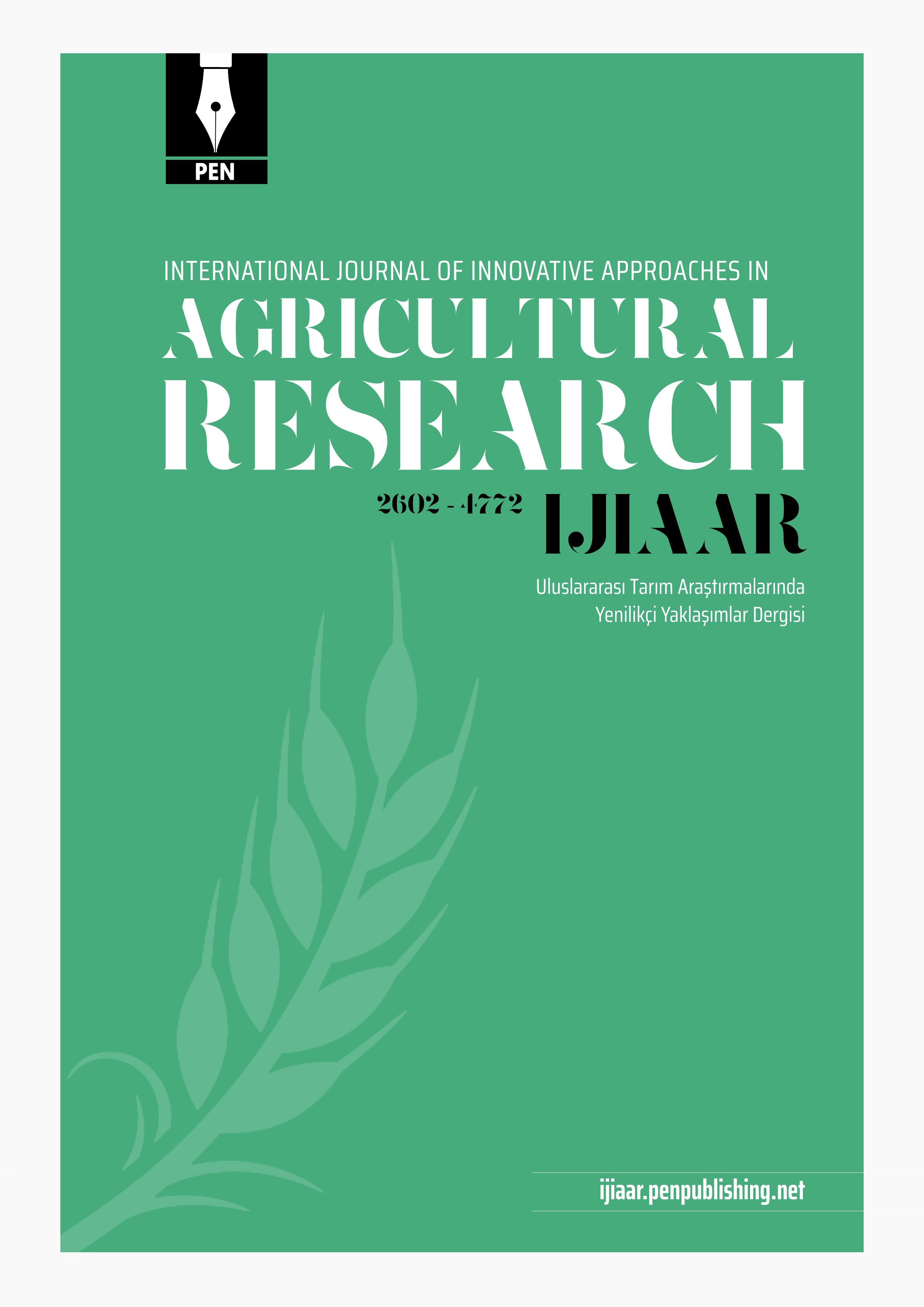
Uluslararası Tarım Araştırmalarında Yenilikçi Yaklaşımlar Dergisi
Yazarlar: Behidj, Benyounes Nassima, Dahmene Thoraya, Behidj Khedidja Kenza, Daoudi Rosa, Rahmoune Esma , A. Koulache
Konular:-
DOI:10.29329/ijiaar.2019.194.12
Anahtar Kelimeler:Thymus numidicus,Mentha piperita,Fusarium sp,Extracts,Essential oil
Özet: The polluting substances are of industrial or agricultural origin, at the level of the different ecosystems. These are the effects of synthetic products on the fauna and flora we are interested in. So our use of biopesticides based on plant extracts, namely essential oils as a natural insecticide is our concern. These bioactive substances or molecules are of great ecological interest because they are very harmful to the ecosystem. The objective of this study is the use of the essential oil of Mentha peperita harvested from the area of Larabaa (Blida) and Thymus numidicus recovered from the area of Bouira as biofungicides with respect to a fungal strain isolated and identified from the leaves of the zucchini crop in Boudouaou-El Bahri (Boumerdes). The isolated species belongs to the genus Fusarium. The extraction method is the hydraudistilation which allowed us to have yields of essential oil of 2.02% for M. peperita and 1.2% for T. numidicus. The study of the antifungal activity of these two oils tested was carried out by the direct contact method. The evaluation of the antifungal effect of these two extracts shows that the essential oil of T. numidicus has an inhibitory capacity on mycelial growth. T. numidicus oil is moderately active for concentrations; 400 μl 700 μl is inhibition rates; 43.33% and 50%. This natural substance is active with the 1000 μl dose, with an inhibition rate of 53.33%. It appears from this study that M. piperita oil is not very active on Fusarium sp with the following concentrations; 400 μl 700 μl and 1000 μl are inhibition rates respectively of 23%, 21.66%, and 23%. The essential oil of Peppermint has a slightly inhibitory activity on Fusarium sp with an inhibition zone diameter of 4.6 cm, 4.7 cm and 4.6 cm respectively for doses 400 μl 700 μl and 1000 μl. So, it is found that the increase in M. piperita oil concentration has no effect on the growth of Fusarium sp. Fusarium sp also shows an allergy to T. numidicus oil, while this plant pathogen is resistant to M. piperita oil.